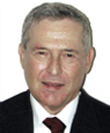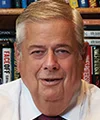 Arthur Solomon Arthur Solomon |
Pundits will spend days after the election pontificating how the debates affected the election. But no one can deny the clear winner here: the networks, which will now use their debate ratings to increase advertising rates. Cable coverage of the candidates and their debates during and after primary season have provided entertainment for political junkies, but have offered few specifics for voters regarding candidate’s stances on the issues. Generalizations have been the norm.
Just when you thought cable’s coverage of the election campaign couldn’t get more pathetic, along came the aggressive, usually solid Chris Wallace to say if the candidates lie during the debate, as Trump did, it’s not his job to call a lie a lie.
Prior to Wallace and his anything goes philosophy, Matt Lauer was roundly criticized when he moderated NBC News’ “Commander-in-Chief” forum, where he failed to ask follow-up questions, seemingly did not know the facts and appeared far more tolerant of Trump’s answers than Clinton’s. NBC deserves a failing grade for letting Lauer, an entertainment journalist, host the show when it had experienced political journalists like Andrea Mitchell and Chuck Todd available.
Instead of behaving like reporters and challenging obvious untruths, both Wallace and Lauer decided to act like Dr. Oz did when that television personality reviewed Trump’s medical information. During the final Wallace-moderated debate, Trump continually denied statements he made that have been seen on TV many times, and Wallace neglected to call him on these untruths. That’s a disservice to viewers who were paying attention to the presidential campaign. Particularly disappointing was that Wallace didn’t correct Trump when he insisted that he never said Japan and South Korea should get nuclear weapons, even though Trump said so on Wallace’s own Fox News show in an April interview. If that isn’t a dereliction of a reporter’s obligation to report the truth, what is?
This isn’t the first time that television coverage of politics could be instrumental in deciding the next president, dating back to the initial televised presidential debate on September 26, 1960 between John F. Kennedy and Richard Nixon. Nixon was sick and looked it. Kennedy appeared fit and animated. People who heard the debate on radio thought Nixon was the winner, but those who viewed the debate on TV sided with the good looking, charismatic JFK. Many analysts thought that debate settled the election despite Nixon’s better knowledge of issues.
One thing is certain to be remembered about the 2016 campaign by students of politics: the inability of cable TV reporters and program hosts to control the Trump surrogates, who continually shout, interrupt and mock anyone who disagrees with them. The reporters would ask the simplest questions, and the surrogates would give a filibustering answer that had nothing to do with the question, resulting in the reporters simply moving on to another topic. The solutions to this problem seem obvious: those surrogates should not be invited back.
Kurt Eichenwald, a senior writer for Newsweek who has broken several newsworthy investigative stories about Trump that have provided hours of intelligent, factual discussions for cable political reporters, summed up the problem with cable political reporting when he appeared on the AM Joy MSNBC program on September 10. Eichenwald said too much reporting is based on the “sounds bad to me standard,” instead of the reporters knowing the facts. He said cable reporters use words like “casts a shadow," or “raises questions,” and other weasel words to cover-up the fact that they don’t know what they're talking about.
As some readers of this site might know, prior to joining Burson-Marsteller, I was a reporter and editor, worked for a political PR firm and also taught at the U.S. Army Information School. At B-M, my assignments included travelling internationally with foreign government officials as a media advisor. I’ve heard at least several hundred questions from reporters to clients in various countries. Based on my experience, the least penetrating and obvious questions are those asked by the cable TV political reporters. And that’s a shame because, unfortunately, too many people rely on cable for their political news.
To me, cable news is the visual twin of talk radio: all opinions and no original news. It’s an enabler of televising misinformation from candidate’s surrogates who make up the great majority of program guests.
If Trump is elected president, it will not be because of his advisers. The credit will belong to the television industry, which for well over a year has peppered Clinton with tough questions while giving Trump wall-to-wall coverage without doing a deep dive into his business background until recently, despite well-researched stories in major print publications. Even now, despite specific details offered in print articles, only general questions are asked and discussed by the cable reporters. Is it because TV reporters on the Trump beat find the issues that specialized reporters for the print pubs uncovered too complex to discuss? Probably.
The reason why the networks couldn’t get enough of Trump, according to the Hollywood Reporter — and picked up by other news outlets — could be summed up by CBS’ CEO Leslie Moonves, who said as the ratings increased and political ad dollars poured in, “It may not be good for America, but it’s damn good for CBS.”
Cable TV political coverage needs a makeover. Only reporters who have the knowledge to challenge the untruths offered by candidates’ surrogates should be permitted to interview them. And only surrogates who act in a civilized manner and don’t continually sprout lies should be permitted on the programs. Presidential elections are too important to America for cable TV stations — which are responsible for permitting lies, trash talk and distortions — to be the backbone of its programming in the guise of providing news.
* * *
Arthur Solomon was a senior VP at Burson-Marsteller. He now is a contributor to public relations and sports business publications, consults on PR projects and is on the Seoul Peace Prize nominating committee. He can be reached at [email protected].


 The ridiculously high prices Americans are paying at the supermarket might influence how—or if—they vote in November.
The ridiculously high prices Americans are paying at the supermarket might influence how—or if—they vote in November. At a moment in history when there are so many conflicts among peoples here and abroad, let us put our differences aside and celebrate this wonderful season in a spirit of togetherness.
At a moment in history when there are so many conflicts among peoples here and abroad, let us put our differences aside and celebrate this wonderful season in a spirit of togetherness. The news announcing the death of Henry Kissinger, the last of the prevaricating politicians and so-called statesmen who stole my future and that of thousands of other young Americans, got me thinking about Walter Cronkite.
The news announcing the death of Henry Kissinger, the last of the prevaricating politicians and so-called statesmen who stole my future and that of thousands of other young Americans, got me thinking about Walter Cronkite.


 Have a comment? Send it to
Have a comment? Send it to 
No comments have been submitted for this story yet.